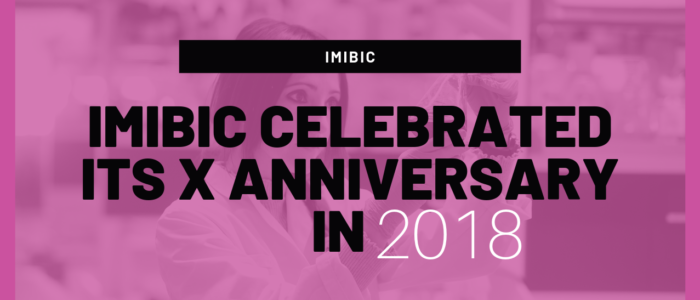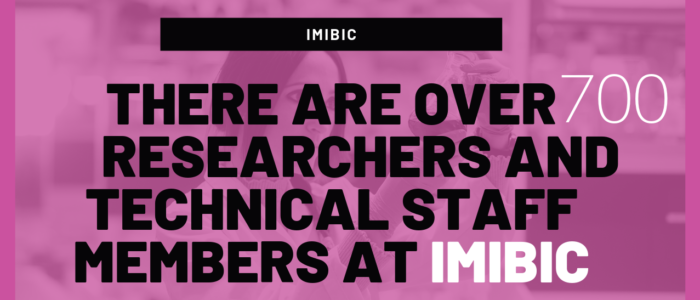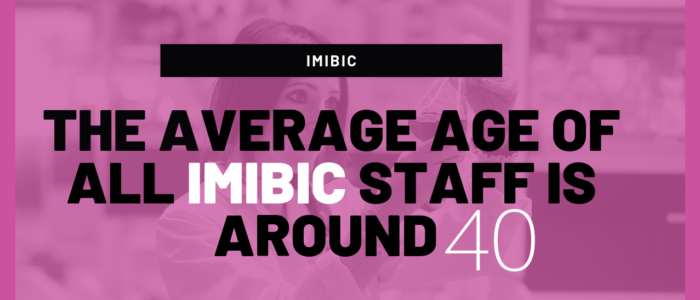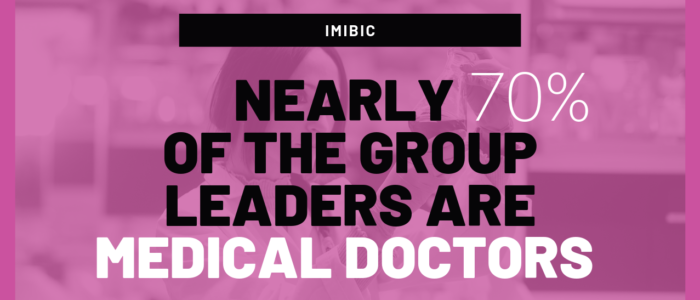Scientific Programmes
This programme aims to further our knowledge of the molecular and pathogenic basis of the ageing process and its relationship with quality of life, as well as to search for new patient care strategies.
The IMIBIC groups contributing to this Scientific Programme are:
- GC01 - T and NK cell Immunosenescence Antiviral Immune Response
- GC07 - Nephrology. Cell Damage in Chronic Inflammation
- GC09 - Nutrigenomics Metabolic Syndrome
- GC12 - Clinical and Epidemiological Research in Primary Care (GICEAP)
- GC17 - Physiopathology of Endocrine Vitamin D System Biotechnology and Aging
- GC19 - Artificial Vision Applications
- GE01 - Oxidative Stress and Nutrition
- GE02 - Preventive Medicine and Public Health
- GE04 - Applied Psychology
- GE08 - Comprehesive Nursing Care. Multidisciplinary Perspective
This program is dedicated to investigating diseases of the metabolic and endocrine systems, with a special focus on the role of nutrition in the prevention and management of these processes at different stages of life. It also focuses on the study of reproductive health and neuroendocrine tumours.
The IMIBIC groups contributing to this Scientific Programme are:
- GC04 - Inflammation and Cancer
- GC08 - Hormones and Cancer
- GC09 - Nutrigenomics Metabolic Syndrome
- GC10 - Hormonal Regulation of Energy Balance, Puberty and Reproduction
- GC11 - Metabolism and Adipocyte Differentiation-Metabolic Syndrome
- GC13 - Calcium metabolism. Vascular calcification
- GC21 - Metabolomics and identification of bioactive compounds
- GC23 - Metabolism in childhood
- GC25 - Knowledge Discovery and Intelligent Systems in Biomedicine
- GC27 - OncObesity and Metabolism
- GE01 - Oxidative Stress and Nutrition
- GE04 - Applied Psychology
- GE05 - Urology and Sexual Medicine
This program studies diseases caused by different infectious agents, particularly infections in immunodepressed patients.
The IMIBIC groups contributing to this Scientific Programme are:
- GC01 - T and NK cell Immunosenescence Antiviral Immune Response
- GC02 - Oxidative and Nitrosative stress in acute and chronic liver disease
- GC03 - Infectious Diseases
- GC07 - Nephrology. Cell Damage in Chronic Inflammation
- GC12 - Clinical and Epidemiological Research in Primary Care (GICEAP)
- GC16 - Cellular biology in Hematology. Hypercoagulability
- GC18 - Translational Research in Surgery of Solid Organ Transplantation
- GC24 - Clinical and Molecular Microbiology
- GC25 - Knowledge Discovery and Intelligent Systems in Biomedicine
- GC26 - Clinical virology and zoonosis
The research focus of this program is on neoplastic diseases, including both solid tumours and haematological malignancies.
The IMIBIC groups contributing to this Scientific Programme are:
- GC01 - T and NK cell Immunosenescence Antiviral Immune Response
- GC02 - Oxidative and Nitrosative stress in acute and chronic liver disease
- GC04 - Inflammation and Cancer
- GC06 - New Therapies in Cancer
- GC08 - Hormones and Cancer
- GC12 - Clinical and Epidemiological Research in Primary Care (GICEAP)
- GC16 - Cellular biology in Hematology. Hypercoagulability
- GC18 - Translational Research in Surgery of Solid Organ Transplantation
- GC19 - Artificial Vision Applications
- GC21 - Metabolomics and identification of bioactive compounds
- GC22 - Epigenetics
- GC25 - Knowledge Discovery and Intelligent Systems in Biomedicine
- GC27 - OncObesity and Metabolism
- GE03 - Inflammatory immune-mediated cutaneous diseases
- GE05 - Urology and Sexual Medicine
This program is oriented to the study of various chronic processes affecting modern society, with a special focus on inflammatory disorders.
The IMIBIC groups contributing to this Scientific Programme are:
- GC01 - T and NK cell Immunosenescence Antiviral Immune Response
- GC02 - Oxidative and Nitrosative stress in acute and chronic liver disease
- GC04 - Inflammation and Cancer
- GC05 - Systemic and chronic inflammatory autoimmune diseases of the locomotor system and connective tissue
- GC07 - Nephrology. Cell Damage in Chronic Inflammation
- GC08 - Hormones and Cancer
- GC09 - Nutrigenomics Metabolic Syndrome
- GC12 - Clinical and Epidemiological Research in Primary Care (GICEAP)
- GC13 - Calcium metabolism. Vascular calcification
- GC14 - Cellular Therapy
- GC15 - Invasive cardiology and cell therapy
- GC19 - Artificial Vision Applications GC20 - Genetics and behavioural diseases
- GC21 - Metabolomics and identification of bioactive compounds
- GC23 - Metabolism in childhood
- GE01 - Oxidative Stress and Nutrition
- GE03 - Inflammatory immune-mediated cutaneous diseases

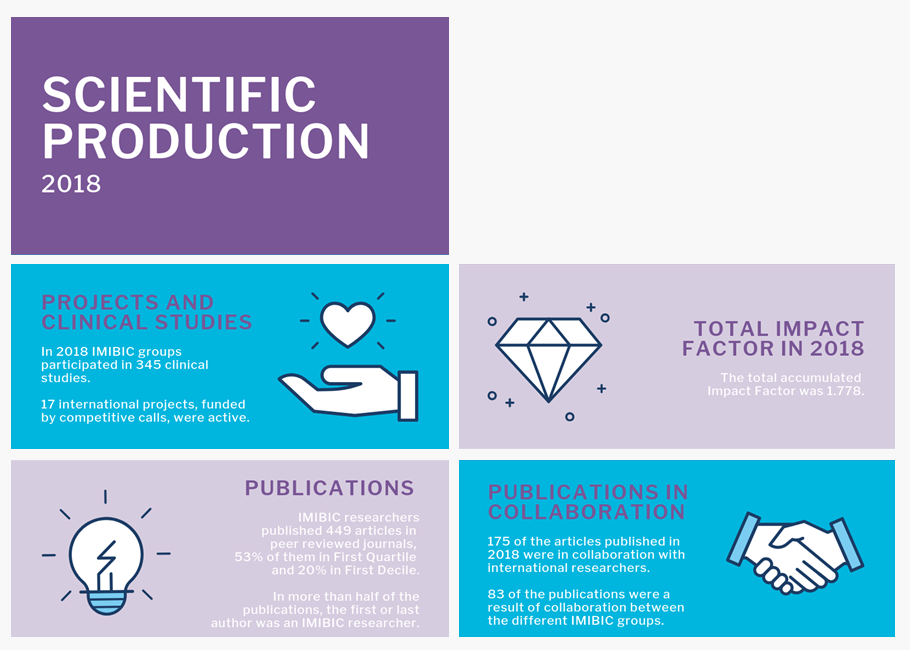
Training and mobility
Approximately 20 researchers carry out a research stay at IMIBIC every year.
Over 100 training activities were organised and 25 PhD Theses were defended at IMIBIC in 2018.
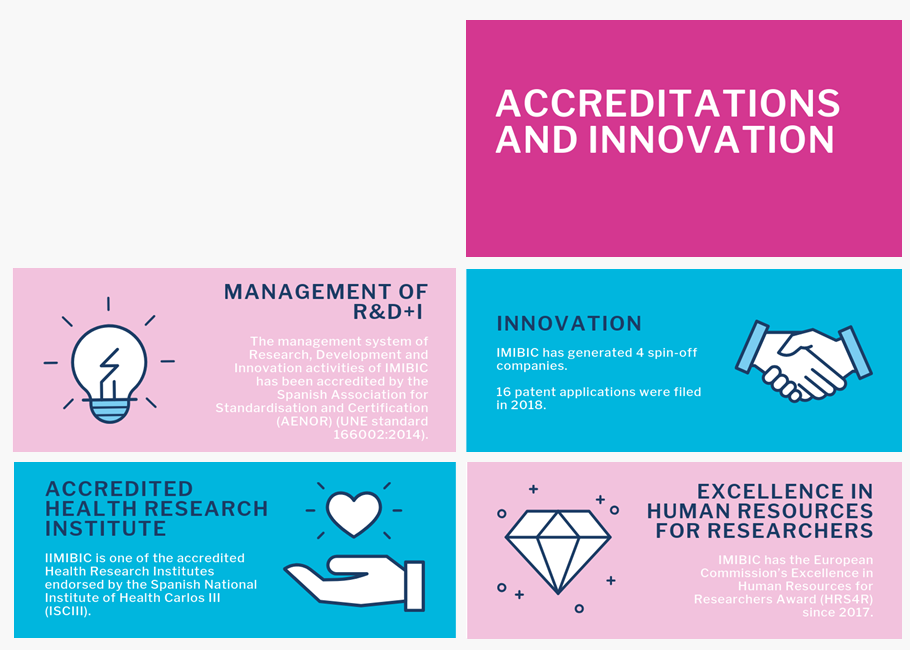
Language courses and Sport
All IMIBIC researchers have access with reduced prices to language courses and sports facilities offered by the University of Cordoba.
For more information, please visit UCOidiomas and UCOdeporte.
Cordoba
Cordoba is a medium-sized city, with approx. 325.000 inhabitants, located in the heart of Andalusia in the south of Spain.
Rich in history and culture, Cordoba is a friendly and welcoming city, with a high standard of living, making it an ideal location for researchers wishing to develop their career in Spain.
The cost of living is cheap in comparison with other Spanish cities.
Transport
Córdoba has excellent transport connections to many main cities of Spain and both to the Mediterranean and Atlantic coasts.
The AVE fast train connects Córdoba with Seville in 45min and with Malaga in 1h. The train trip to Madrid takes 1h40min, and to Barcelona 4h30min. There are international airports in Malaga, Seville, and Madrid.
Read more about Córdoba:

